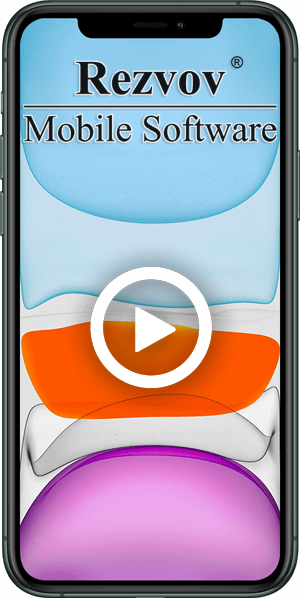A mobile application for a manufacturer or retailer
Own feature-rich mobile application for a manufacturer of goods or a seller of third-party goods is a strategic business tool. Here are the main aspects that determine the value of such an application:
1. Sales channel
First of all, the app is an additional sales channel, allowing customers to easily browse and buy products directly from their mobile devices.
2. Personal interaction with customers
The app provides an opportunity for a more personalised interaction with customers. It can be used to send notifications about promotions, discounts or new products, as well as offer personalised recommendations.
3. Analytics tool
With the app, manufacturers and retailers have access to detailed analytics on user behaviour, allowing them to improve marketing strategies and product offerings.
4. Process optimisation
The app can automate many business processes such as order management, inventory and customer records.
5. Brand Reinforcement
The app reinforces the brand in the eyes of consumers. The presence of a brand icon on the screen of the customer's mobile device increases brand awareness and brand loyalty.
6. Feedback
Apps usually have inbuilt feedback tools, making it easy for customers to leave feedback or ask questions and for companies to respond promptly.
7. Multi-platform
Many mobile apps can run on different platforms (iOS, Android), which broadens their reach.
Conclusion
Own multifunctional mobile application for a manufacturer of goods or a seller of third-party goods is a powerful tool for modern business that can enhance interaction with customers, optimise business processes, increase sales and strengthen the brand's position in the market.
A proprietary, feature-rich mobile app for a product manufacturer or third-party seller is an integrated platform that can provide a number of strategic business benefits and features. Here are some of them:
1. Point of Sale
Such an app can serve as an additional point of sale, allowing users to browse and buy products directly.
2. Marketing tool
It is a powerful marketing tool that allows you to run ad campaigns, promotions, special offers and discounts to attract and retain customers.
3. Analytics tool
With built-in analytics, you can collect data on user behaviour, preferences, interests and demographics to help you optimise your assortment and marketing strategies.
4. Communication channel
The app serves as a channel of communication with customers, allowing them to ask questions, provide feedback and receive counselling, which improves customer service and builds customer loyalty.
5. Order management and inventory management
The application can integrate with inventory and order management systems to automate and optimise business processes.
6. Convenience and accessibility
Mobile applications provide users with convenient and quick access to goods and services anytime and anywhere.
7. Branding and image
Having your own app improves brand image and strengthens your brand position in the market.
Conclusion
A multifunctional mobile app for a product manufacturer or retailer is a multifaceted tool that can strengthen the brand, increase sales, optimise business processes and strengthen customer relationships through improved interaction and service.
A mobile app can significantly increase the number of customers for a manufacturer or retailer of goods. Here's how it can achieve this:
1. Online Visibility and Accessibility:
In the digital age, online presence through mobile apps provides access to a wider audience and increases brand visibility.
2. Convenience and Efficiency:
An app facilitates the shopping experience by allowing users to quickly find products, place orders and receive advice.
3. Personalisation:
The app can offer users personalised products and offers based on their preferences and behaviour, which can drive sales.
4. Marketing and advertising:
Promoting products and services through the app using targeted advertising campaigns and special offers can attract new customers.
5. Push Notifications:
Apps can send push notifications to the user about new products, promotions and discounts, motivating them to buy.
6. Loyalty programmes:
Introducing loyalty and rewards programmes can encourage repeat purchases and attract new customers.
7. Feedback and reviews:
The ability to leave reviews and receive feedback can build customer trust and improve brand reputation.
8. Social Media Integration:
Integrating the app with social media can increase audience reach and improve engagement with potential customers.
Conclusion:
A feature-rich mobile app, properly utilised and integrated into the business processes of a manufacturer or retailer, can significantly increase the number of customers, strengthen customer relationships and drive sales growth.
